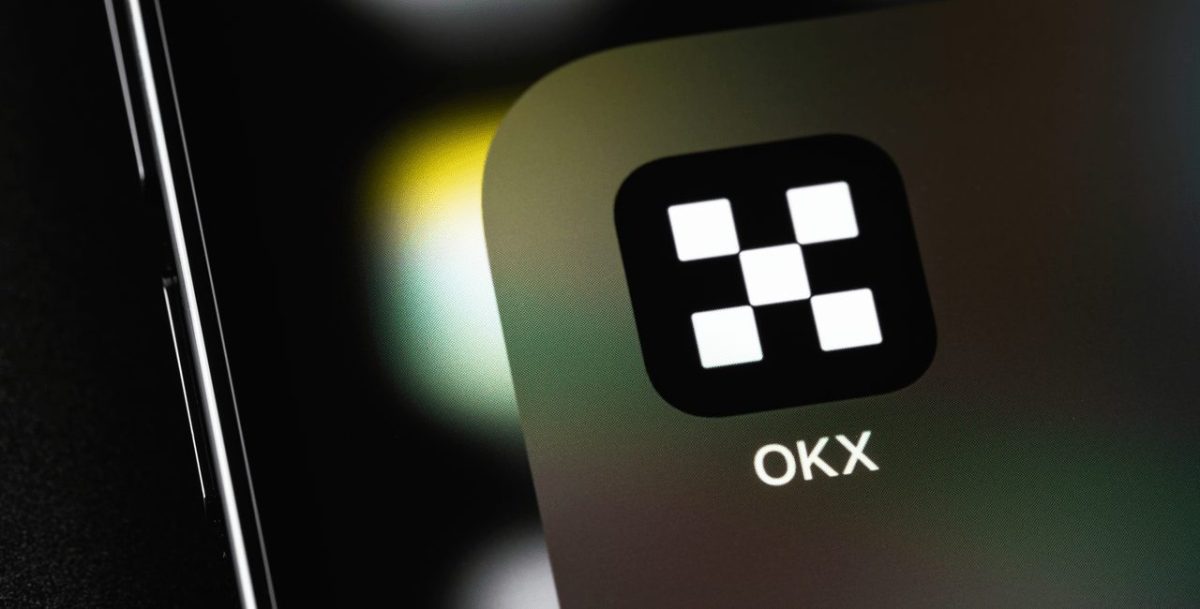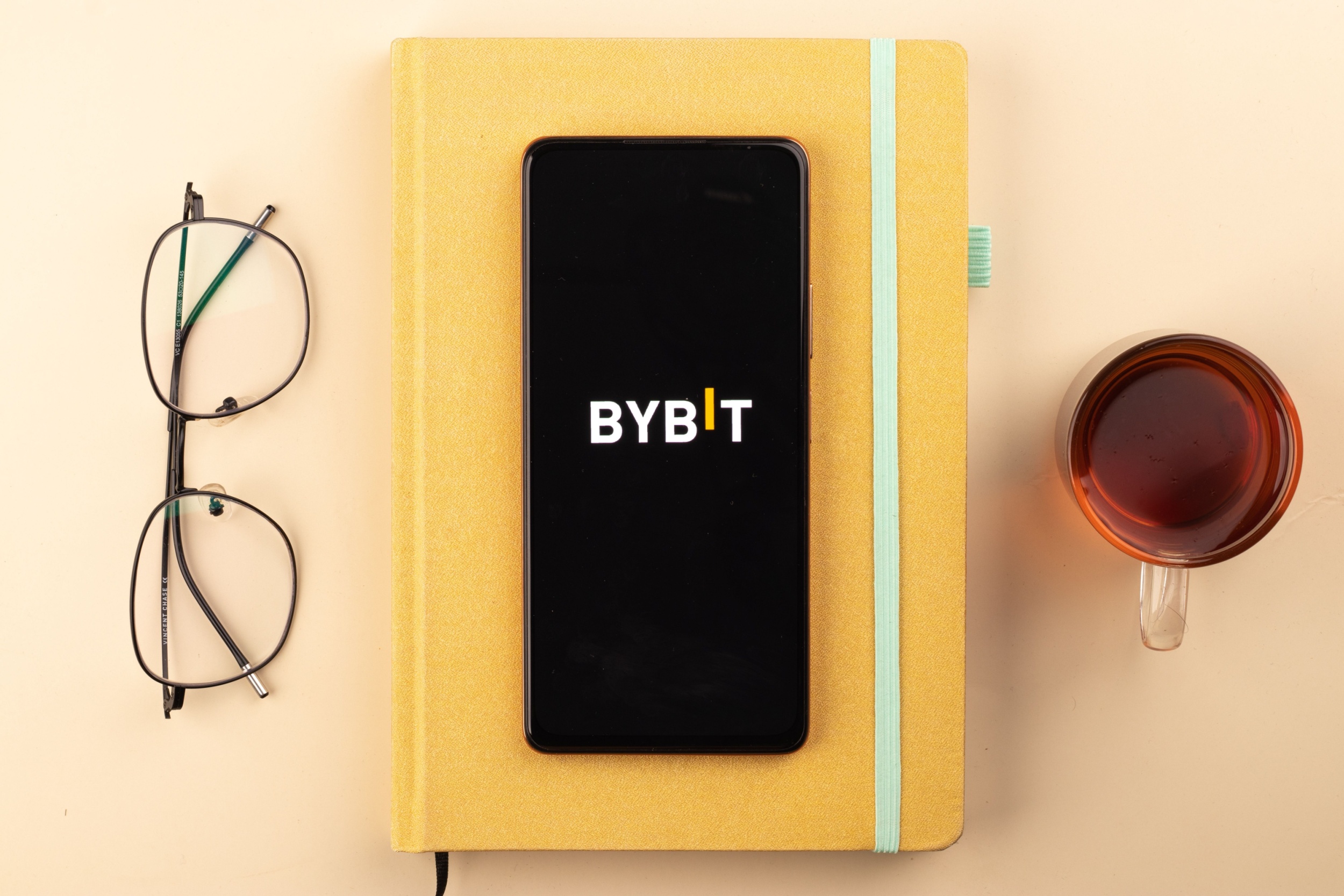Looking for the best crypto cold wallets? Ledger and Trezor stand out as top contenders. Ledger’s hardware wallet and Trezor offer secure storage solutions for safeguarding your digital assets.
In this comparison article, we’ll bust some myths and explore the key features of both wallets so you can choose which cold wallet best suits your needs.
New tokens to consider holding in 2024
- Dogecoin20 offers stake-to-earn features with huge rewards currently above 115% p/a
- DOGE20 presale raised $2 million in its first week
- PoS mechanics making it greener and more sustainable than PoW coins
 ETH
ETH USDT
USDT Debit
Debit
- Potential to skyrocket amid Solana meme coin hype
- Rumored to be from the developers $SLERF, which saw huge growth earlier this year
- Similar to Slothana, which recently saw a hugely successful presale and launch
 SOL
SOL
- An AI and dog-themed memecoin on Ethereum
- Presale tokens are staked an provide rewards during the presale
 ETH
ETH USDT
USDT
- New token with Learn to Earn (L2E) model with exclusive courses
- Integration with BRC-20, opening the ability to build on top of the Bitcoin network
- Stakers enjoy high staking rewards every Ethereum block
 ETH
ETH USDT
USDT BNB
BNB- +1 more
- The 5SCAPE tokens unlock special in-game features
- Brings VR capabilities into Web3 gaming
- An ERC20 token that's compatible with existing Ethereum DeFi platforms and smart contracts
 ETH
ETH BNB
BNB USDT
USDT- +2 more
- Innovative blockchain-based electric vehicles project
- The eTukTuk prototype is scheduled to be revealed in the first phase
- opBNB will be used in tandem with BNB for scalability and reduce costs
 ETH
ETH BNB
BNB USDT
USDT- +1 more
Whether new to crypto or a seasoned investor, choosing the right wallet is crucial for protecting your investments.
Let’s settle the Ledger vs. Trezor debate! Join us as we explore these wallets’ functionalities, security measures, and ease of use, ensuring your crypto stays secure in cold storage.
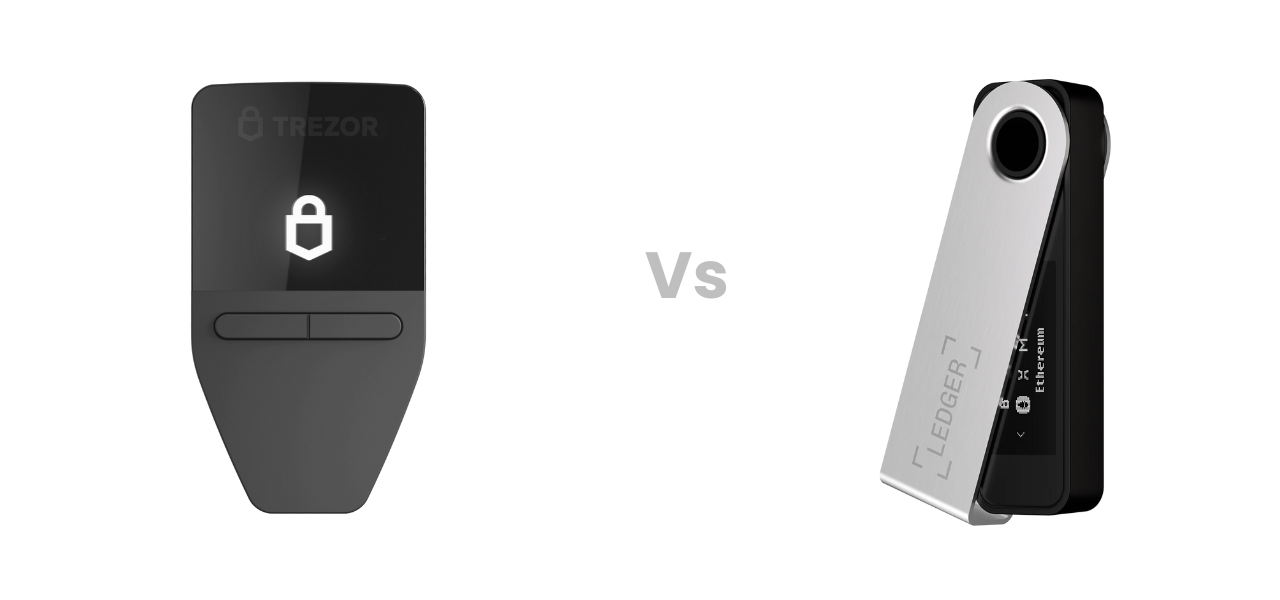
Comparing Trezor and Ledger
Founded in 2014, Ledger is a hardware wallet offering secure offline cryptocurrency storage. Its compact design keeps your private keys offline, shielded from cyberattacks. Ledger also provides secure companion software, allowing you to manage cryptocurrency transactions.
Founded in 2013, Trezor is a popular hardware wallet designed for secure offline storage of cryptocurrencies. It prioritizes user-friendliness, providing easy access to digital assets without compromising on high-security standards.
Source note: All figures and data used in this article were current and accurate at the time of publication.
What do Trezor and Ledger Offer?
Trezor and Ledger hardware wallets are often at the top when picking the best crypto cold wallets. Both offer robust security features and user-friendly interfaces, making them popular among cryptocurrency enthusiasts.
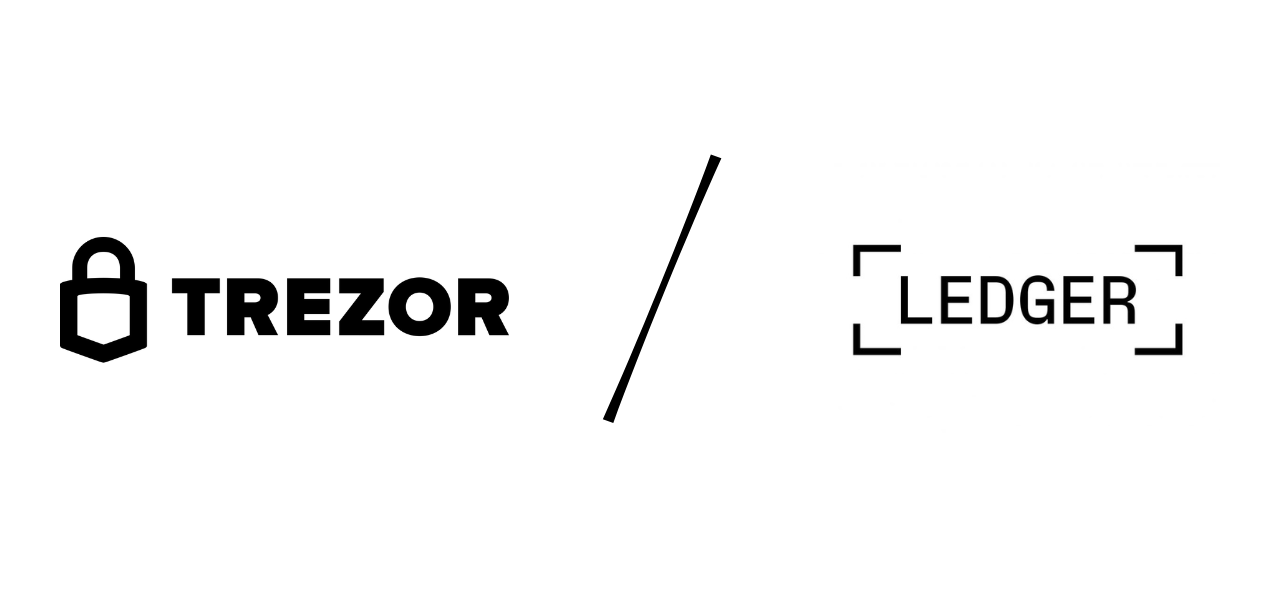
Trezor offers a range of sleek and intuitive wallets to suit different needs. Users can choose from entry-level Trezor One to the more advanced Trezor Model T. Trezor wallets support various cryptocurrencies, providing flexibility and peace of mind.
On the other hand, Ledger hardware wallets are known for their security and coin support. The devices like the Nano S and Nano X have state-of-the-art security features. Ledger Live software allows users to manage their cryptocurrency assets and perform transactions securely.
Trezor and Ledger prioritize the security of users’ funds, employing features such as PIN protection, passphrase support, and recovery seeds to safeguard against unauthorized access. These cold wallets are also designed to keep users’ private keys offline, minimizing the risk of exposure to hacking or malware attacks.
Regarding ease of use, Trezor and Ledger offer intuitive interfaces that make it simple for users to send and receive cryptocurrency transactions. With clear instructions and responsive displays, beginners can confidently navigate the wallets.
Ledger vs. Trezor: Which wallet carries more cryptocurrencies?
Ledger hardware wallets reign supreme in the variety of supported cryptocurrencies. With over 5,500 coins and tokens, Ledger provides storage for a vast majority of digital assets, including popular choices like Bitcoin (BTC), Ethereum (ETH), and Dogecoin (DOGE). This extends to newer projects, with Cardano (ADA) and Tezos (XTZ) finding a home on Ledger devices.
While Trezor wallets still offer a broad range of cryptocurrencies (between 1,289 and 1,456, depending on the model), they prioritize established coins. This means you’ll find all the major players like Bitcoin and Ethereum, but some altcoin support may differ from Ledger. Trezor One users won’t have access to Ripple (XRP) or Binance Coin (BNB).
Supported cryptocurrencies at a glance
| Feature | Ledger | Trezor |
| Total cryptocurrencies supported | Over 5,500 | 1,289 (Trezor One) |
| Popular coins supported | Yes (BTC, ETH, LTC, DOGE) | Yes (BTC, ETH, LTC, DOGE) |
| Support for newer coins | Yes (ADA, XTZ) | Limited |
| Support for Ripple (XRP) | Yes | No (Trezor One only) |
Ultimately, the choice depends on your specific needs. If you prioritize a wider selection of altcoins and tokens, Ledger offers a clear advantage. However, Trezor remains a solid option for those focused on major cryptocurrencies.
Is Trezor Safer than Ledger?
1. Chip architecture
Ledger wallets boast a CC EAL5+ certified secure chip. One chip is a secure element (SE) used in credit cards for PIN verification, adding an extra layer of defense against physical tampering. Trezor uses a single chip but focuses on open-source software, allowing for more scrutiny by the security community.
However, Trezor wallets are known to be more vulnerable to physical attacks. If someone finds your Trezor hardware wallet and brings it to a specialist, they could extract your coins. Ledger wallets, on the other hand, are thought to be safe from this class of attacks due to the secure element.
2. The trade-off of transparency and security
The trade-off is between transparency and security. While Trezor’s hardware specs and firmware/software are fully open-source, Ledger relies on proprietary hardware (the Secure Element), keeps some of its firmware closed-source, and may be unable to open all of it even if it wanted to. This closed-source approach raises concerns for some users who value complete transparency.
3. It’s all about the threat levels
Choosing between Trezor and Ledger depends on your priorities – bleeding-edge security or complete software transparency. You should also consider how likely you think physical access to your hardware wallet is in your threat model.
No hardware wallet is completely secure from hacking.
Both Ledger and Trezor wallets have been exposed to vulnerabilities.
The recent revelation that Ledger can offer recovery services suggests a technical capability to extract private keys under certain circumstances, contradicting their previous communication and raising concerns about true security.
Additionally, a company specializing in cryptocurrency recovery claims to have found a way to hack Trezor T hardware wallets with physical access, exploiting a hardware vulnerability in the STM32 chip.
These developments highlight the importance of understanding that no hardware wallet is foolproof.
Which wallet is easiest to use?
Choosing between Ledger and Trezor comes down to ease of use for many crypto newcomers.
Ledger prioritizes a user-friendly experience. Their intuitive interface on the Ledger Live companion app makes navigating purchases, transfers, and account management a breeze. Ledger Live walks you through the setup process step-by-step with clear instructions and helpful visuals.
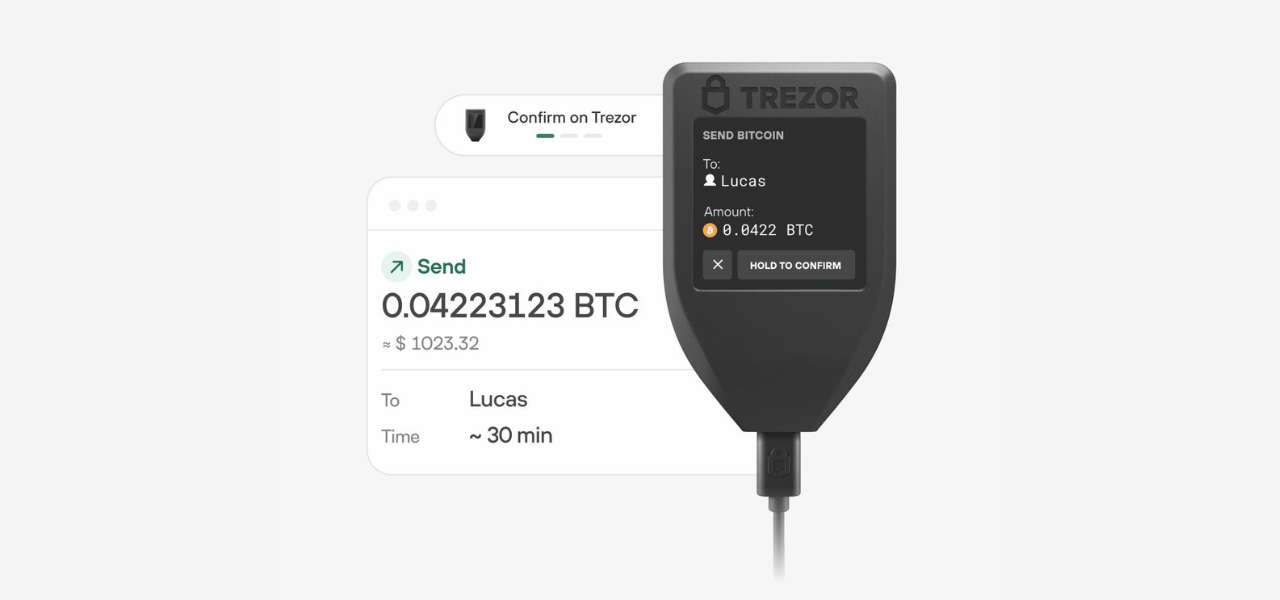
While secure, Trezor offers a slightly steeper learning curve. Its interface can feel less intuitive, especially for beginners. While Trezor offers detailed information screens, some users need more streamlined for everyday transactions.
Ultimately, Ledger and Trezor are the best crypto cold wallets, offering top-notch security. However, if you prioritize a smooth and user-friendly experience, Ledger shines with its intuitive interface.
Ledger vs. Trezor: Which wallet has sold more units?
The battle is intense when it comes to which wallet sold more units. Both Trezor and Ledger have garnered significant market share in the realm of cold wallets. While specific sales figures are closely guarded secrets, it’s clear that both brands have a substantial customer base.
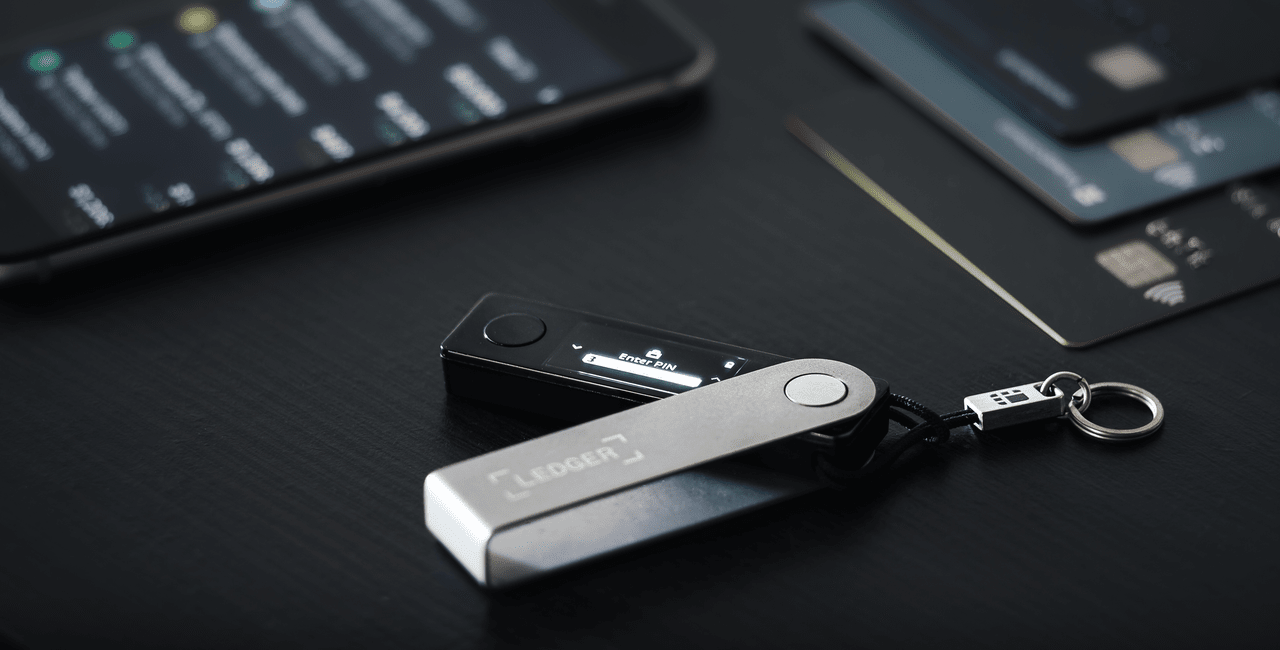
Trezor, one of the pioneers in the field, boasts a loyal following. Its reputation for security and user-friendly interface has attracted many crypto enthusiasts. Conversely, Ledger has made significant strides in recent years with its sleek design and advanced features.
Each wallet has unique selling points, catering to different preferences within the crypto community. Trezor emphasizes open-source software and transparency, while Ledger focuses on cutting-edge security technology.
Factors such as price, design, and compatibility also influence consumer choices. Trezor offers a range of models at various price points, appealing to both beginners and experienced users. Ledger’s emphasis on security features may attract those willing to invest more for peace of mind.
Ledger secured a total of $574.38 million in funding over 8 rounds. Their most recent funding round was a Series C – II for $108 million, which closed on March 30, 2023. In June 2021, Ledger’s valuation was at $1.5 billion.
Ledger vs. Trezor: Which wallet has more advanced features?
When comparing Ledger and Trezor in terms of advanced features, both wallets offer a robust set of functionalities tailored to the needs of crypto enthusiasts. However, there are nuanced differences worth considering.
Ledger boasts a slightly broader range of supported cryptocurrencies, making it an attractive option for those invested in a diverse portfolio. Its integration with Ledger Live software provides a seamless user experience, allowing for easy asset management and the ability to stake certain cryptocurrencies directly from the wallet interface.
Additionally, Ledger devices feature a secure element chip, which provides an extra layer of protection against physical attacks.
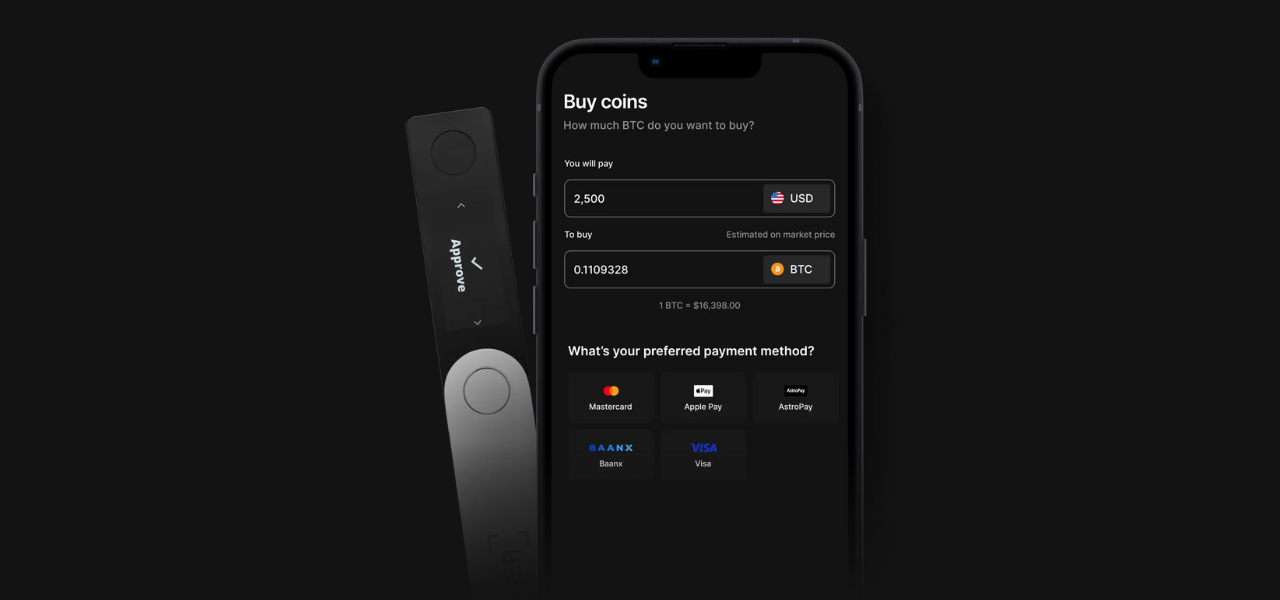
On the other hand, Trezor prioritizes open-source development, appealing to users who value transparency and community-driven innovation. Trezor’s firmware is open-source, allowing users to verify its security independently.
Furthermore, Trezor devices support a wide array of third-party applications, enabling users to explore additional functionalities beyond basic asset management. The Model T even features a touchscreen interface, enhancing usability for some users.
What are the best Trezor and Ledger models?
Trezor offers two main models:
- Trezor Model One: Affordable, secure option for beginners. Supports over 9,000 cryptos. Lacks touchscreen and Bluetooth connectivity.
- Trezor Model T: More advanced option with touchscreen and microSD card slot for expanded storage. Supports 9,000+ cryptos.
Ledger also has two leading models:
- Ledger Nano S Plus: Upgrade to the classic Nano S with more memory for app storage. It supports over 5,000 coins and is compact and budget-friendly.
- Ledger Stax (on Preorder) is the latest and most feature-rich Ledger. It boasts a sleek metal design, Bluetooth connectivity, and the highest level of security certification. It supports over 5,000 cryptos.
Table Summary
| Model Name | Release Year | Price (USD) | Touchscreen | Bluetooth |
| Trezor Model One | 2014 | 59 | No | No |
| Trezor Model T | 2018 | 179 | Yes | No |
| Ledger Nano S Plus | 2022 | 79 | No | No |
| Ledger Stax | 2024 | 279 | Yes | Yes |
Which wallet is budget-friendly?
Price is a key factor for crypto newcomers seeking the best cold wallets. Trezor Model One boasts a more attractive price tag than the Ledger Nano S. This can be a deciding factor, especially for those starting their foray into cold storage.
However, Trezor and Ledger prioritize security, ensuring your crypto remains safe. While Trezor might be slightly cheaper, prioritize your needs. If features like a larger screen or Bluetooth connectivity are important, the Ledger Nano S might be worth the extra cost.
Ultimately, the most budget-friendly option depends on your needs and security priorities.
Final Verdict: Trezor or Ledger?
Regarding securing your cryptocurrency, Trezor and Ledger are the top choices in the industry, offering unparalleled security through their cold wallet solutions.
However, Trezor is a great option for those who value privacy. It offers closed-source firmware and strongly emphasizes giving users control over their private keys, which can appeal to security-conscious individuals.
If you’re looking for expanded dApp and coin support, Ledger might be a preferable option due to its ability to integrate with a larger selection of wallets and decentralized applications (apps).
Even if a certain token is not officially supported, it may still be added to the wallet. Explore the support pages/forums of either Trezor or Ledger.
Still, the most effective approach to security is to diversify. Multiple cold wallets, such as Trezor and Ledger, are recommended to minimize risk and leverage each platform’s strengths.
Remember to apply the golden rule in crypto: never keep all your assets in one wallet.
Alternatives to Trezor and Ledger
Looking beyond the Ledger vs. Trezor debate, other contenders in the realm of best crypto cold wallets include Coldcard, Tangem, and Bitbox (for Bitcoin). These alternatives offer diverse features and security protocols for storing cryptocurrencies offline.
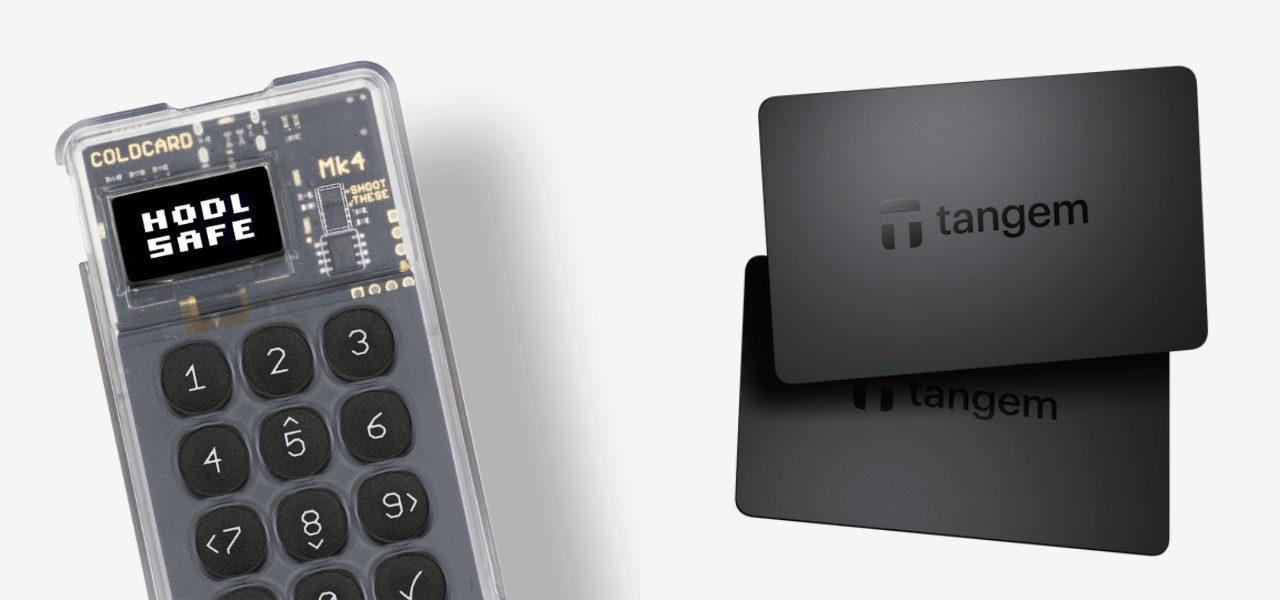
- Coldcard stands out for its robust security measures and open-source firmware, appealing to users who prioritize transparency and control over their assets.
- Tangem‘s smart banknotes offer a unique approach, providing an innovative solution for securely storing digital assets in physical form.
- Bitbox specializes in Bitcoin storage, offering simplicity and ease of use for users seeking a straightforward solution tailored to Bitcoin storage needs.
Evaluating the available alternatives alongside Trezor and Ledger will enable individuals to choose the cold wallet that aligns best with their preferences and requirements for safeguarding their crypto holdings.
Each option has its own strengths, catering to a diverse range of needs within the cryptocurrency community.
FAQs
What are hard wallets?
Hard wallets are physical devices resembling USB drives that store your cryptocurrency holdings offline in “cold storage.” They securely hold your private keys, which are essential for accessing your crypto on the blockchain.
What is cold storage?
Cold storage isolates your cryptocurrency from the internet, significantly reducing the risk of hacking. Unlike online wallets (“hot wallets”), hard wallets never store your private keys online, making them much less vulnerable to cyberattacks.
Are hard wallets safer than hot wallets?
Yes, hard wallets offer superior security compared to hot wallets. By keeping your private keys offline, they significantly reduce the attack surface for hackers. Hot wallets, while convenient, are always online and inherently more susceptible to breaches.
How are cryptocurrency hot wallets different from cold wallets?
Cryptocurrency hot wallets are connected to the internet, making them convenient for frequent trading but vulnerable to hacking due to their exposure. In contrast, cold wallets, like hardware or paper wallets, store cryptocurrencies offline, providing enhanced security against cyber threats.
Hot wallets prioritize accessibility, but cold wallets prioritize safety by keeping assets offline.
Hot wallets are similar to carrying cash in your pocket for everyday transactions, while cold wallets are more like storing money in a safe deposit box for long-term security.
Should I use Trezor or Ledger today?
Both Trezor and Ledger are reputable brands offering top-tier security for your cryptocurrency. Choosing between them depends on your needs. Ledger offers a wider range of supported cryptocurrencies, while Trezor prioritizes a user-friendly interface.
Were hard wallets ever hacked?
While no hard wallet has been hacked, breaches can still occur. If malware compromises a user’s computer, hackers could potentially steal the private key displayed on the screen during a transaction. Always prioritize strong cybersecurity practices alongside your hardware wallet.
Are hard wallets expensive?
Hard wallets typically cost between $50 and $200, significantly less than the potential loss of your cryptocurrency. They offer a cost-effective way to enhance the security of your crypto holdings.
Is Trezor better than Ledger?
There’s no single “better” option. Trezor boasts a user-friendly interface and excellent security, while Ledger supports a wider range of cryptocurrencies. Evaluate which features are most important for you and your crypto portfolio.
Which cold wallet is best?
The best cold wallet depends on your individual needs. Ledger and Trezor are both industry leaders offering top-notch security. When choosing, consider factors like user interface, supported currencies, and additional features.
Are cold wallets 100% safe?
Security solutions are not foolproof. While cold wallets significantly reduce hacking risks, physical loss or damage to the device could result in lost cryptocurrency. Always back up your recovery phrase securely.
Sources
- https://www.thodex.com/wallets/trezor/
- https://blog.trezor.io/open-source-and-hardware-obsolescence-ce526d5eec8f
- https://developers.ledger.com/docs/device-app/architecture/bolos/hardware-architecture
- https://cointelegraph.com/news/trezor-reports-300-surge-in-sales-revenue-due-to-ftx-contagion
- https://www.coindesk.com/tech/2023/05/24/crypto-security-firm-unciphered-claims-ability-to-physically-hack-trezor-t-wallet/










